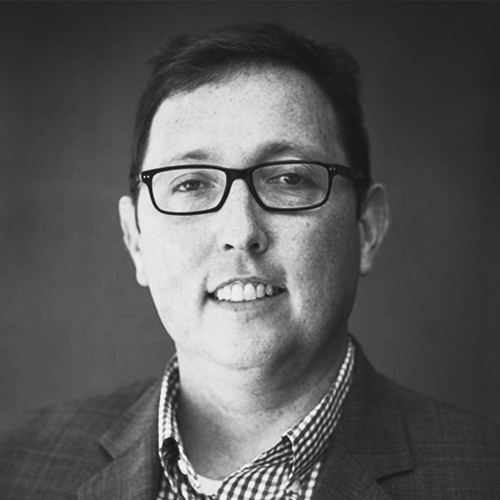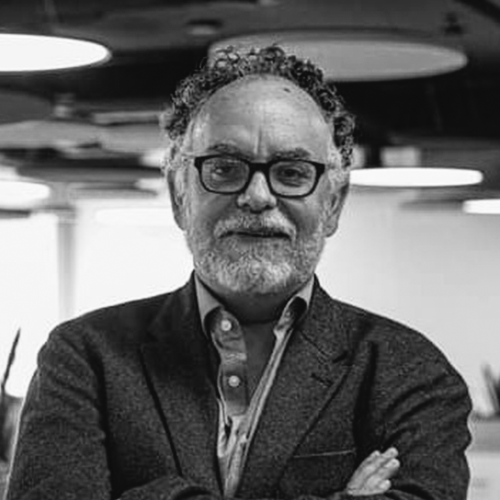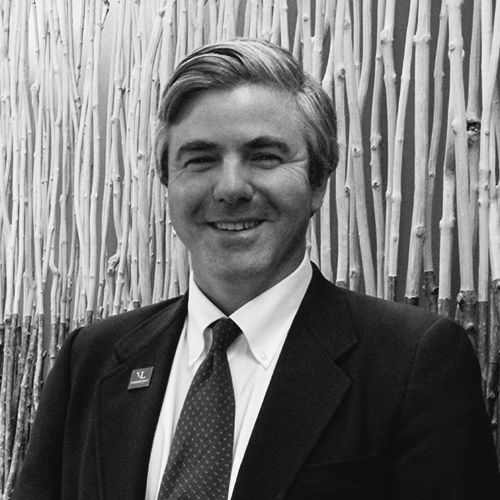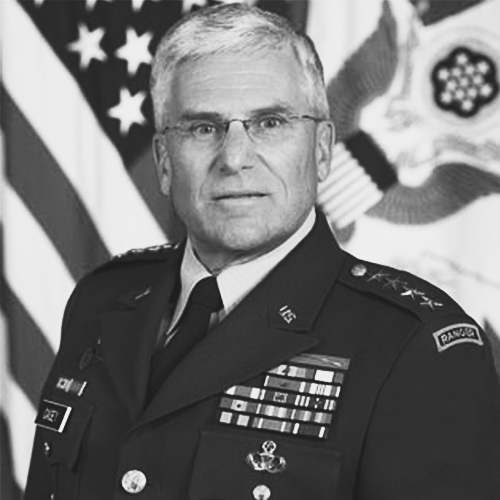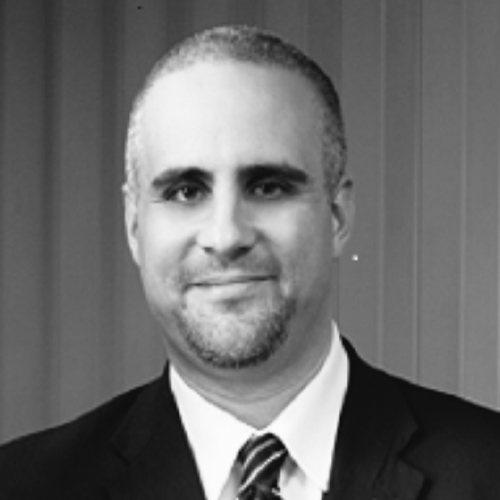Ariel Avgar is an Associate Professor at the ILR School at Cornell University and Associate Director for Research and Student Engagement with the Scheinman Institute on Conflict Resolution. His research focuses on two primary areas within employment relations. First, he explores the role that employment relations factors play in the healthcare industry. As such, he examines the effects of a variety of workplace innovations, including new technology, delivery of care models, and innovative work practices, on patients, frontline employees, and organizational performance. Second, he studies conflict and its management in organizations with a focus on the strategic choices made by firms. He seeks to better understand the consequences of conflict for employees and employers. In addition, his research investigates the adoption and implementation of organizational level conflict management practices and systems. His research has been published in a number of journals including: Industrial and Labor Relations Review, Industrial Relations, British Journal of Industrial Relations, Ohio State Journal on Dispute Resolution, International Journal of Conflict Management, International Journal of Human Resource Management, Negotiation and Conflict Management Review, Advances in Industrial and Labor Relations, Health Services Research and Medical Care. He received the 2008 Best Dissertation Award and the 2013 John T. Dunlop Scholar Award, both from the Labor and Employment Relations Association and serves as the Editor-in-Chief for the association. His paper (with Eric J. Neuman) titled “Blind spots and mirages: A dyadic approach to the study of team conflict” received the 2012 Best Paper: New Directions Award from the Academy of Management Conflict Management Division. He received a Ph.D. in Industrial Relations from the ILR School at Cornell University and a B.A. in Sociology and an LL.B in Law from Hebrew University. He served as Law Clerk for the President of the Israeli National Labor Court before being admitted into the Israeli Bar. Prior to joining ILR, he was an associate professor (2014-2016) and assistant professor (2008-2014) at the School of Labor and Employment Relations at the University of Illinois at Urbana-Champaign.
Overview and Courses
The complex challenges facing the world are not solved solely by governments, nor by corporations or nonprofit organizations working alone, but with leadership and innovation from all three sectors. The Executive Master of Public Administration program at Cornell is an interdisciplinary, inter-sectoral degree designed for working professionals who want to enhance existing skills and advance their careers in the broad field of public affairs. In this 18-month blended program taught by Cornell faculty, you will participate in advanced training in strategic planning and management, economic and financial analysis, program evaluation, and project management, preparing you for your next administration or policy role in any sector.
- Data-Driven Organizations, Policy and Decision-Making for Executives
- Strategic Advocacy for Executives
- Public Administration: A Strategic Planning Perspective for Executives
- Leadership for Public Service Executives
- Negotiations Skills for Executives
- Law and Public Agency Decisions for Executives
- Market Regulation for Executives
- Navigating Public-Private Partnerships for Executives
- Microeconomics for Public Affairs Executives
- Managerial Statistics for Public Affairs Executives
- Program Evaluation for Executives
- Translational Research for Executives
- Media Strategy for Policy Executives
- Strategic Nonprofit Management for Executives
- Project Management for Executives
- Financial Accounting for Executives
- Public Budgeting and Finance for Executives
- Managing Change in Public Affairs for Executives
- Fundraising for Executives
- Public and Nonprofit Marketing for Executives
- Effective Policy Writing for Public Affairs Executives
- International Public Management for Executives
- Public Interest Technology for Executives
- Corporate Responsibility for Executives
- Vulnerability and Resilience Planning for Executives
Students will make two 1-week visits to Cornell’s campus, where they will meet their classmates and professors in person. These residencies include intensive courses in:
- Year 1 Summer residency week:
- Microeconomics for Management and Policy II
- Strategic Nonprofit Management II
- International Public Management II
- Year 2 Summer residency week:
- Vulnerability and Resilience Planning for Executives
- Managing Change in Public Affairs for Executives
- Public-Private Partnerships
How It Works
FACULTY
Tarcisio Alvarez-Rivero is a recently retired senior staff member of the United Nations, where he served for 29 years. He is currently an adjunct professor and lecturer at American University and IE University, Madrid, in addition to his classes at Cornell University.
At the United Nations, Professor Alvarez-Rivero’s last assignment was as Coordinator of the SPARK (Strategy, Partnerships, Accountability, Results and Knowledge) teams in the Office of the Under-Secretary General of the UN Economic and Social Commissions for Western Asia (UN ESCWA) in Beirut, Lebanon. In this position, he oversaw ESCWA’s strategic planning and business intelligence processes as well as the evaluations, risk management, and internal control programmes. Professor Alvarez-Rivero also led ESCWA’s organizational learning and change management processes, including its transition to an AGILE-based business model. In addition, he oversaw the development of the UN Development System’s Regional Knowledge and Data Hub and ESCWA’s online Arabic learning management system.
Professor Alvarez-Rivero was a member of the UN Development Group’s Task Team on Programme Development and Results, and he led the UN Strategic Planning Network Task Force on Strategy and UNSDCFs, through which he coordinated the interagency processes that developed the planning guidance for all UN country offices (2020) as well as the update of the UN Development System guidance document on Results-Based Management. Professor Alvarez-Rivero was also a member of the principals group of the UN Evaluations Group and the UN high-level Task Forces on Strategic Human Resource Management and on Gender Finance.
During his UN career, Professor Alvarez-Rivero executed a number of field projects, including the development of national cleaner technology strategies in Argentina, Colombia, Nicaragua, the Slovak Republic, Tanzania, and Vietnam. He has also engaged in advisory services with several governments for the development of supply chain and environmental management initiatives, including projects in Denmark, Norway, Korea, Japan, and the United States. Professor Alvarez-Rivero was a member of the drafting committees of the ISO 14051 and ISO 26000 standards and led the drafting group of the International Federation of Accountants Environmental Management Accounting Guidelines. Additional achievements include the creation of the global programme on the 10-year Framework of Programmes on Sustainable Consumption and Production (10YFP), the establishment of the UN Office for the Decade of Water in Zaragoza, Spain, and the co-founding of the EMAN Global Network.
Prior to joining the United Nations in 1995, Professor Alvarez-Rivero worked in the private sector for over a decade, most recently as a representative agent for Cargill Inc. in Latin America, where he negotiated commodities contracts and managed commodities production and export programmes.

Mark Bayer is an international keynote speaker specializing in high-impact written and oral communication, storytelling, and the art and science of persuasion. He previously served as a Chief of Staff in the U.S. Senate and House of Representatives during a 20-year career working in Congress.
Mark is also a Visiting Lecturer for Cornell University’s professional development unit, eCornell. Since 2018, he has hosted the podcast “When Science Speaks,” ranked in the top 5% most popular podcasts out of 3.5M podcasts globally. Mark has appeared in Science, The New Yorker, Forbes, Barron’s, TeenVogue, and many other publications.

Jared Carter is a longtime professor and a veteran attorney who regularly advocates for social, legal, and economic justice. Professor Carter spent a year as law clerk to Justices William Leaphart, Jim Rice, and Jim Nelson at the Montana Supreme Court. Since clerking, he has taught and practiced law all over the United States at institutions including Cornell Law School, Emory University, Vermont Law and Graduate School, and Seattle University.
An active member of the Vermont and New York bar associations, Professor Carter directs the Vermont Community Law Center, representing individuals and organizations in front of courts, city councils, and legislatures to advocate for change. He has a wealth of relevant experience and is dedicated to bringing his diverse background to the classroom. In addition to his work as an attorney and educator, Professor Carter has successfully led legislative and community organizing campaigns.
General George W. Casey, Jr. enjoyed a 41-year career in the U.S. Army following his graduation from Georgetown University’s School of Foreign Service in 1970. He is an accomplished soldier and an authority on strategic leadership. As the Army Chief of Staff, he led one of our largest and most complex organizations during one of the most extraordinary periods in our history. He is widely credited with restoring balance to a war-weary Army and leading the transformation to keep it relevant in the 21st Century. Prior to this, from July 2004 to February 2007, he commanded the Multi-National Force – Iraq, a coalition of more than 30 countries. He guided the Iraq mission through its toughest days and set the conditions for our long-term success.
Currently, he lectures internationally on leadership to the leaders of national and multinational corporations and at other business schools. He serves on several corporate boards and numerous boards of organizations that support our servicemen and women, our veterans, and their families. He also teaches international relations at the Korbel School in Denver.
He has published a book, Strategic Reflections, Operation Iraqi Freedom, July 2004-2007 (October 2012), about his experiences in Iraq, and two articles on leadership: “Leading in a VUCA World”, Fortune Magazine (March 20, 2014), and “Volatile, Uncertain, Complex and Ambiguous: Leadership Lessons from Iraq”, Chapter 1, Changing Mindsets to Transform Security, (December 2013).
He holds a Masters Degree in International Relations from Denver University, and served as a Senior Fellow at the Atlantic Council of the United States, a foreign policy think-tank. He has broad international experience. Born in Japan, he served in operational assignments in Europe, the Balkans and the Middle East.


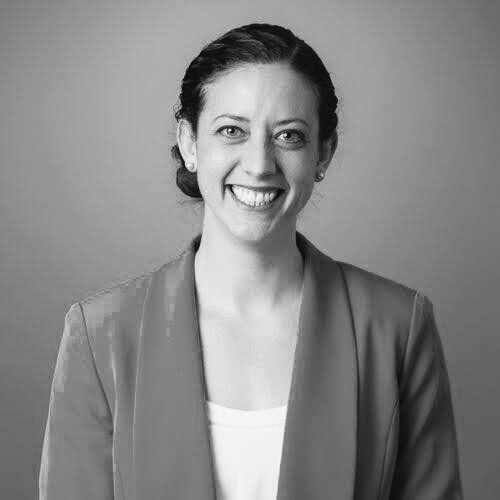


Rick Geddes is founding Director of the Cornell Program in Infrastructure Policy. Dr. Geddes’ work has appeared in leading academic journals, including the American Economic Review; Journal of Regulatory Economics; Journal of Legal Studies; Journal of Law and Economics; and Journal of Law, Economics, & Organization. He is author of the 2011 AEI book “The Road to Renewal: Private Investment in U.S. Transportation Infrastructure.” Dr. Geddes teaches courses at Cornell on infrastructure policy, corporate governance, microeconomics, and the regulation of industry. He holds M.A. and Ph.D. degrees in Economics from the University of Chicago and a B.S. in Economics and Finance from Towson State University.
Karan Girotra, Professor of Operations, Technology and Information Management (OTIM), is the recipient of the Charles H. Dyson Family Professor of Management chair, for a 5-year term. This chair was given by Rob Dyson, MBA ’74 to support a founding faculty position for Johnson instruction at Cornell Tech, in honor of his father, the founder of the Dyson-Kissner-Moran Corporation.
Karan Girotra is a Professor at Cornell Tech and in the Johnson School at Cornell University. Karan collaborates with companies building new business models in the areas of urban living, smart transportation and e-commerce, helping them build rigorous research based solutions.
Karan’s research team has been recognized by multiple awards including the prestigious Wickham Skinner Early Career Research Award and multiple best paper awards. He has also won teaching awards for his teaching on entrepreneurship and new business models and was featured in the Poets and Quant’s Best 40 under 40 business professors lists.
In addition to his academic work, Karan was one of the founders of Terrapass Inc., which the New York Times identified as one of the most noteworthy ideas of 2005. Since then, TerraPass has helped businesses and individuals reduce over hundred million tons of carbon dioxide emissions.
Karan holds PhD and AM degrees from the Wharton School of the University of Pennsylvania, and a Bachelor degree from the Indian Institute of Technology, Delhi.
Joe Grasso is the Vice President of Finance and Administration at Le Moyne College in Syracuse, NY. He previously served as the Associate Dean of Finance, Administration, and Corporate Relations in the ILR School at Cornell University.
Professor Grasso has 25 years of financial and managerial experience in the private, public, and nonprofit sectors. In addition to his administrative responsibilities, he regularly taught resident graduate and undergraduate ILR courses on campus in Ithaca and continuing education/extension courses for the Human Capital Development programs in New York City, most recently “Finance for Human Resources” and “Nonprofit Finance and Management.”
Professor Grasso was the VP of Administration at Washington and Lee University. Prior to joining Washington and Lee, he was the Associate Dean for Planning and Operations at the College of Arts & Sciences, University of Virginia. Professor Grasso was also VP of Finance and Administration at Allegheny College as well as Director of Budget, Planning, and Institutional Research at Colgate University. He spent nearly a decade in New York State government serving as a Senior Budget Analyst in the Division of the Budget and as Director of the Budget for the New York State Thruway Authority. Professor Grasso started his career in the Financial Management Program at General Electric.
Professor Grasso received his graduate degree in human resources from the ILR School at Cornell University and a B.A. in economics from St. Lawrence University. He has volunteered with and served on the boards of many nonprofit and professional organizations.
Dan Lamb is Deputy Supervisor of Dryden, New York and an Associate Teaching Professor at the Cornell Brooks School of Public Policy. Professor Lamb has more than two decades of experience in federal, state, and local government, which informs his teaching in intergovernmental relations, politics and policy, policy writing, and public administration. A congressional aide for 15 years, his government background also includes public transit management; consulting on infrastructure, renewable energy, and healthcare projects; and legislative research for the New York State Senate.
Professor Lamb serves on the boards of Cornerstone Family Healthcare and the Tompkins County Climate Protection Initiative and is a member of Cornell’s Energy Transition Community Advisory Team. He has been Deputy Supervisor of the Town of Dryden, New York, since 2016. Professor Lamb holds an MPA from Syracuse University’s Maxwell School.


John Mathiason is Adjunct Professor at the Cornell Jeb E. Brooks School of Public Policy. He is also Managing Director of Associates for International Management Services, a consulting company providing advice and training to international organizations and not-for-profit institutions on results-based management planning and evaluation, including the United Nations Development Group, the United Nations Division for Social Policy and Development, the Food and Agriculture Organization of the UN, the International Atomic Energy Agency, the Comprehensive Test Ban Treaty Organization, the United Nations Office for Internal Oversight, the United Nations Development Programme, the United Nations Office on Drugs and Crime, the United Nations Convention to Combat Desertification, the World Meteorological Organization, the International Labour Organization, the Office of the High Commissioner for Human Rights, the International Social Science Council, the AARP, Disabled People’s International, the SSM Foundation of the Dominican Republic, the Ministry of Family, Youth and Children of the Government of Panama, the Equal Opportunity Commission of Hong Kong, the United Nations Development Programme in Ecuador, Architecture for Humanity in Haiti, the Swedish International Development Cooperation Agency and the Club of Madrid. He was the team leader of the Independent External Evaluation of the ILO Evaluation Function that was considered by the ILO Governing Body in November 2010 and team leader of the review of the Management and Accountability System of the United Nations Development System in 2011. He was the lead external consultant to support the Intersessional Working Group of the UN Convention to Combat Desertification in the mid-term evaluation of the UNCCD Strategy (2008-2018). He is a member of the External Evaluation Panel of the European Bank for Reconstruction and Development and leader of the external reviews of evaluations by the United Nations Fund for Population Activities (UNFPA) and the United Nations Office on Drugs and Crime (UNODC), the assessment of the evaluations of evaluations of UNICEF, and was consultant to the Organization for Security and Cooperation in Europe (OSCE) on performance measurement.
He was a staff member of the United Nations Secretariat for thirty years, starting as a technical assistance expert in evaluation of agrarian reform programs and in his last ten years as Deputy Director of the Division for the Advancement of Women, responsible for managing support to negotiations leading up to the Fourth World Conference on Women including involvement of NGOs. He has taught and written extensively on international governance issues, including governing the Internet, where he has been a member of the Internet Governance Project, and effective management of international arms control verification regimes. He is co-author of a book on the Elimination of Weapons of Mass Destruction: Prospects for Effective International Verification, published by Palgrave in March 2005, Invisible Governance: International Secretariats in Global Politics published by Kumarian Press in January, 2007 and Internet Governance: The New Frontier of Global Institutions by Routledge in 2008. He analyzes the General Assembly in the Annual Review of UN Affairs, published by Oxford University Press. He was an Adjunct Professor of Public Administration at the Wagner Graduate School of Public Administration at New York University and later was Professor of International Relations at the Maxwell School of Citizenship and Public Affairs of Syracuse University. He is an editor-in-chief of the Journal of International Organizations Studies. He has a Ph.D. in Political Science from the Massachusetts Institute of Technology.
Barbara Mink is a Senior Lecturer of Management Communication at the Johnson Graduate School of Management. She is a management communication professional with a focus on intercultural communication, leadership, and persuasion. Professor Mink teaches persuasive and informational writing for business purposes, as well as how to craft business presentations that are clear, concise, and compelling. She was news director of WHCU radio from 1978 to 1986 and taught radio journalism at Ithaca College and Cornell. Professor Mink served on the Tompkins County Legislature for 12 years and as its chair for five. She was also founder and director of the Light in Winter Festival of Science and the Arts from 1999 to 2011. Professor Mink is a visiting lecturer at ESCP Europe in Paris, where she teaches effective leadership through communication. She is also an active painter with an international presence.

Thomas O’Toole is the Executive Director of Public Affairs Programming in the MPA Program at Cornell University’s Jeb E. Brooks School of Public Policy. He teaches the MPA Program’s core course on “Issues in Public Administration,” a seminar on “Comparative Public Administration: The Case of Seoul, Korea,” and has collaborated on projects and educational programming with the United Nations Division of Public Administration and Development Management, the UN World Food Programme, and the International Food Policy Research Institute.
Professor O’Toole is also responsible for monitoring the strategic direction of the MPA Program as well as providing ongoing oversight to ensure the achievement of the program’s educational and professional missions. As part of his responsibilities, Professor O’Toole oversees all student professional development activities related to the graduate field of public affairs at Cornell, including maintaining institutional relationships with organizations in the public, private, and nonprofit sectors and facilitating job and internship placements for Brooks MPA students. He also plays a key role in overseeing the Brooks School’s executive degree programs, including the Executive MPA and Executive MHA, ensuring support for students throughout their experience from the admissions process to program completion.
Professor O’Toole received his undergraduate degree at Bucknell University and Master’s and Ph.D. from Cornell.
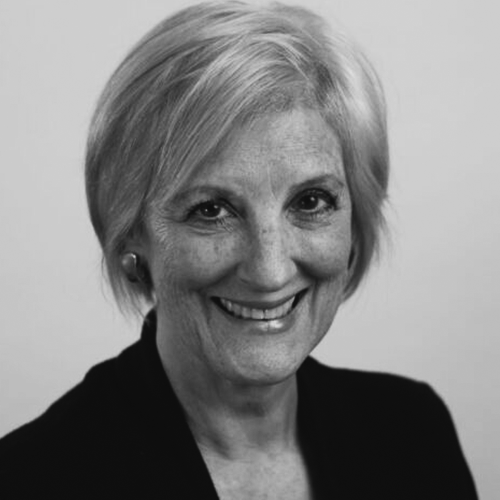
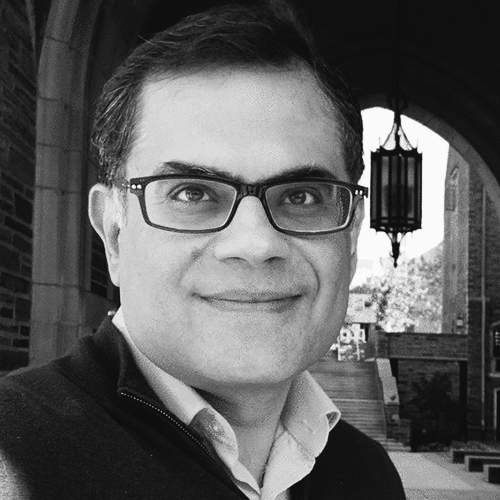

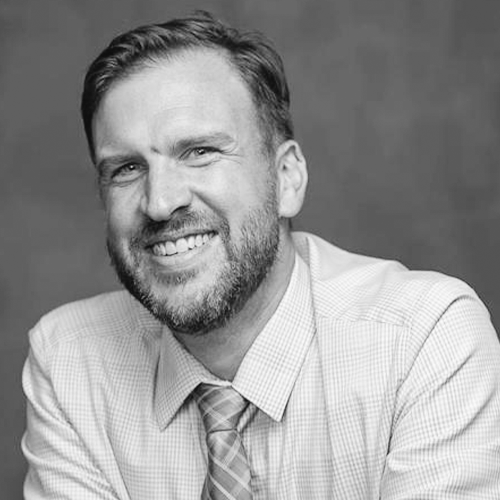

John Tobin-de la Puente is a Professor of Practice at the Charles H. Dyson School of Applied Economics and Management in the Cornell SC Johnson College of Business. He is also Director of the CEMS international MBA program as well as the Director of the Grand Challenges at Dyson program. Professor Tobin is an ecologist and attorney with over two decades of private sector experience, having worked in the international finance industry for much of his career.
Following a decade of corporate legal practice in the area of emerging markets finance, while actively providing counsel on environmental conservation matters on a pro bono basis, Professor Tobin turned his full attention toward the growing area of corporate sustainability, becoming Managing Director and Global Head of Sustainability at Credit Suisse. In this position, he pioneered a variety of initiatives and policies aimed at setting the finance industry on a more sustainable course.
In 2016, Professor Tobin transitioned into a faculty position at Cornell University, where he teaches corporate sustainability, environmental and social risk management, impact investing, environmental finance, and related topics to undergraduates and graduate students in business and public affairs. His research focuses on the use of financial tools to generate positive outcomes in the areas of sustainable development and biodiversity conservation.
In addition, Professor Tobin actively engages with industry and civil society to develop financial solutions to sustainability problems, including as co-founder of the Coalition for Private Investment in Conservation (CPIC). Professor Tobin has extensive leadership and governance experience in not-for-profit entities at the board level, particularly in the areas of environment, science, and education.
Cindy van Es is Professor of Practice in the Charles H. Dyson School of Applied Economics and Management. She has a Ph.D. in statistics from Iowa State University and joined Cornell in 1988. Professor van Es teaches three courses in the undergraduate business program: Introductory Statistics, Business Statistics, and Impact Learning: South Africa. Her general area of interest is statistical education, with a focus on business applications and teaching through social justice examples.
Professor van Es currently serves as Director of Dyson’s Undergraduate Business Program. In this position, she provides strategic leadership and supervision on activities within the undergraduate program at the school, focusing specifically on implementation of the undergraduate curriculum and review of academic policies


Who Should Apply
- Public affairs practitioners with more than 8 years of experience who need to balance a rigorous graduate education with the demands of a full-time job
- Elected officials
- Congressional and state legislative staff
- Federal, state, and local government professionals
- Foreign government personnel
- Personnel of international organizations
- Military service members (EMPA is eligible for Post-9/11 GI Bill and Yellow Ribbon Benefits)
- NGO staff
- Private sector professionals working in the public interest at the interface with government agencies
- Data science professionals looking to hone their management skills for careers that intersect with government
- Professionals working in highly-regulated industries (infrastructure, financial services, logistics and shipping, technology)
- Commercial and public sector management consultants
- Sustainability professionals



